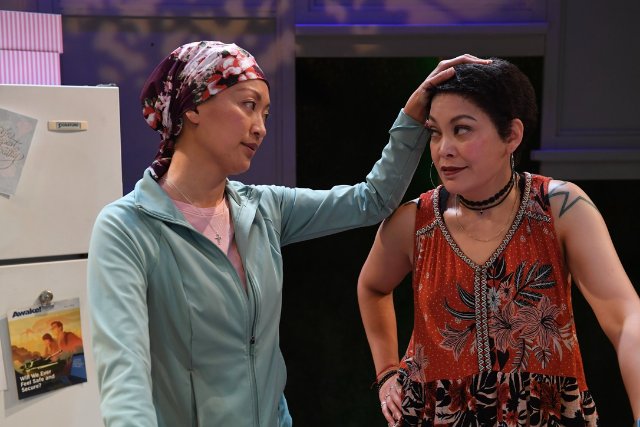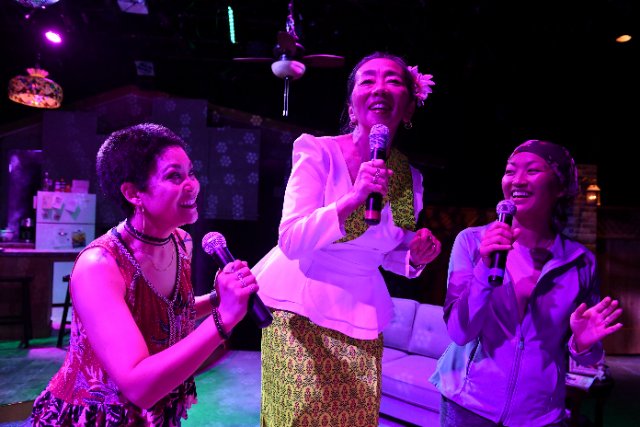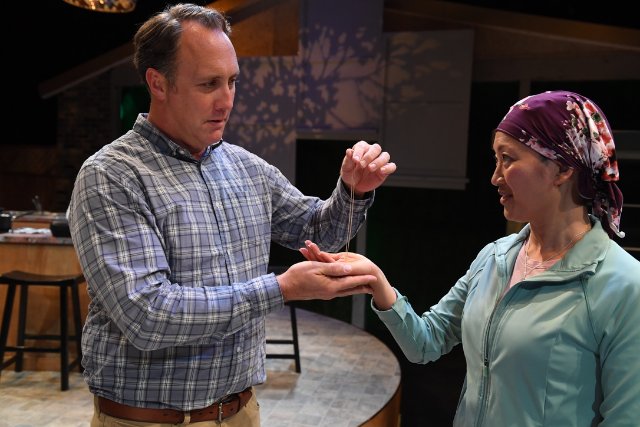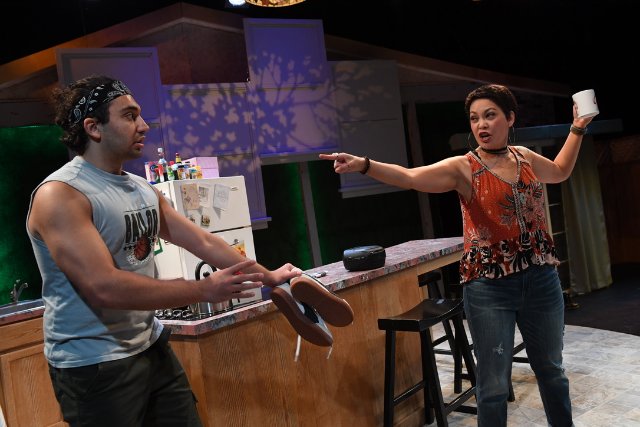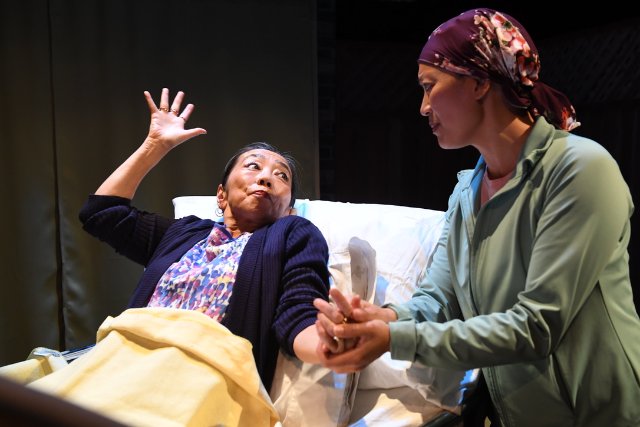Bald Sisters
A Clash of Cultural and Family Values.
By: Victor Cordell - Sep 19, 2023
What about that old adage that blood is thicker than water, which suggests that loyalties among blood relatives should be stronger than those between unrelated people? Media and personal observation reveal an abundance of examples that belie that cliché. A somewhat contrary notion suggests that despite growing up with the same immediate kin, the further apart siblings are born, the more they are raised in “different families.” This premise relates to differences caused by birth order and the changed economic and social condition of the family as it evolves.
“Bald Sisters” is about the clash between two sisters dealing with funeral preparations for their deceased mother, with flashbacks to earlier days which flesh out the relationships among the three women. Acting by all five actors is adept, and the San Jose Stage realization meets its typically high production standard. While the script touches on interesting cross-cultural matters and deals well with a number of family crises, the conflicts simmer rather than sizzle or startle. But along the way, the play is funny and thoughtful.
The title alone should intrigue anyone unfamiliar with the work, but it is quite literal and highlights a divide between the sisters. Him, the name of the older daughter, is undergoing chemotherapy for breast cancer and covers her hair loss with a scarf. Sophea, the younger, has a new buzz cut in recognition of her mother’s passing. It represents the baldness of a Buddhist monk’s foregoing of worldly things, (One can accept that many actresses would bristle at going with a completely nude pate).
If the name Him for a female raises eyebrows, the family is Cambodian. The older daughter was born in their ancestral land, though the family immigrated to Dallas. Unless the playwright simply wanted to highlight this name as reflecting a cultural difference, it is not clear why he chose a character name that in English contradicts the person’s gender. Him does not appear among www.momjunction.com’s list of 176 Cambodian baby names, so there are many alternatives. A further confusion - the mother is called Ma, but it is pronounced as in matter or mask. So it is not clear whether this is the daughters’ idiosyncratic rendering of the English word or if it is the Cambodian proper name.
Anyway, Sophea was conceived in Cambodia and born in the U.S., but the father died before Ma and Him left the squalid conditions of refugee camps in Thailand. These “different family” factors play into the underlying dynamic between the sisters.
Although she dies in the opening scene, Keiko Carreiro is an absolute scream as Ma. Totally irreverent and uncensored, this drama queen is the show’s comic center. She humorously dresses down her daughters by calling them bitches in her scratchy-squeaky voice and otherwise swears like a Marine. But as much as she tells others what to do, she doesn’t reveal much about herself. In fact, the girls know nothing about Ma’s expectations for death ceremonies or body treatment. What’s more, she’s left no will.
Nicole Tung plays the understandably subdued Him, weakened and leaving the room frequently to vomit from reaction to the chemo treatments. She is married to a white pastor, Nate, who is deftly portrayed as earnest but diffident by Will Sprinnghorn, Jr. Given her Christian marriage and having stayed around Ma for the duration, she has proceeded on the basis that Ma would receive Christian burial rites.
Conversely, Sophea resettled to New York City and has not been seen in four years. Believing that Ma would want to be treated in Buddhist death tradition, she bristles at Him’s dismissiveness about her ideas. But Him has little confidence in Sophea and that she can do anything right. Rinabeth Apostol performs as the wayward one who seethes and snarls.
The final character, the lawn guy Seth, played by Zaya Kolia, has no strategic significance to the plot. He does have his shining moment reciting a Syrian prayer, and he does act as diversion fodder elsewise.
While “Bald Sisters” doesn’t reach for much in terms of plot development, the situations and interactions do offer a rewarding experience. Cultural and family matters are well depicted. One enrichment to the storytelling would be having hair and costume changes for the sisters in flashback sequences.
One final issue of note to some, unlike most all theaters that this reviewer has attended this year, San Jose Stage holds to the pandemic practice of offering no physical program – not even a one sheet listing of performers and artistic contributors.
“Bald Sisters,” written by Vichet Chum, is produced by San Jose Stage and plays at its theater at 490 South First Street, San Jose, CA through October 8, 2023.

